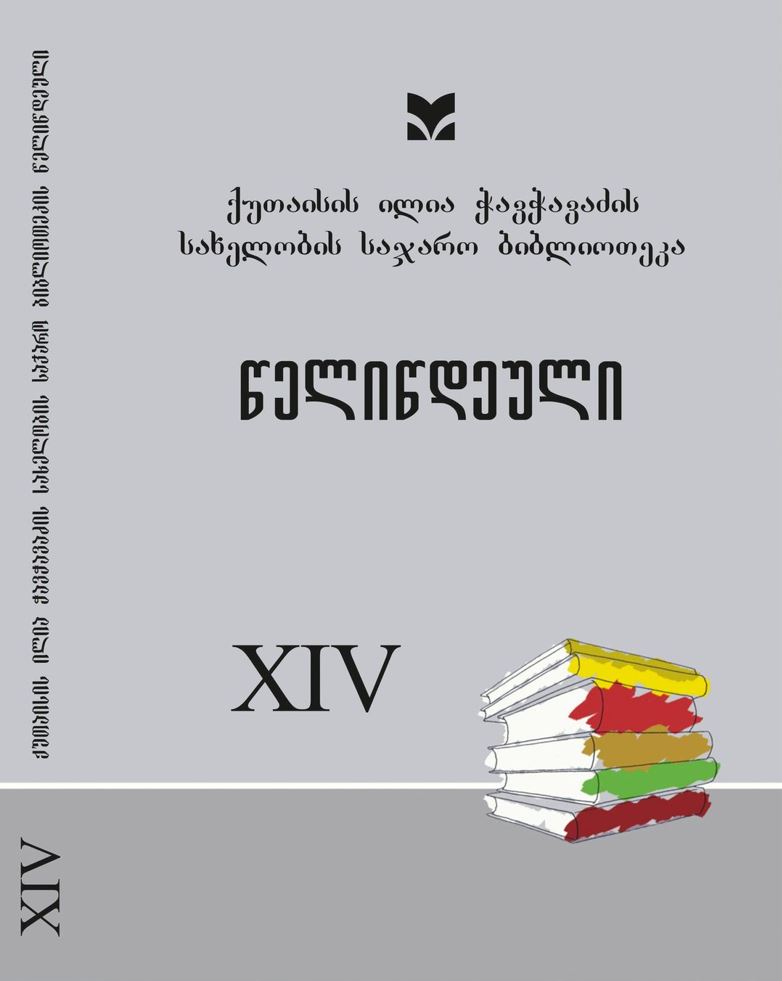The Presence of Greeks and the Greek Language in the Abkhazian Autonomous Soviet Socialist Republic (20th-30th Century)
DOI:
https://doi.org/10.61491/yk.14.2022.6972Keywords:
Greeks in Abkhazia, Ponto Greeks in Abkhazia, Greek language in the Abkhazian ASSR, Greek DeportationsAbstract
This study represents the first attempt in the Georgian language to analyze the fundamental aspects of the presence of Pontic Greeks and the usage of the Greek language across various domains during the 20th-30th century, after their relocation from Ottoman Turkey to Abkhazia in 1867. The research draws upon documents preserved in the Georgian archives and information obtained from scholarly literature.
The establishment of the new Greek diaspora in Abkhazia transpired following the dissolution of the Abkhazian Principality in 1864, which resulted in the mass deportation of Abkhazians to Ottoman Turkey. The inaugural Greek settlement, known as „Pervinka“ (meaning „firstborn“ in Russian), was founded in 1868. Greek resettlement from Ottoman Turkey to Abkhazia continued until 1921. During the 20th-30th century, the Greek population in Abkhazia ranked third in number, following the Abkhazians and Georgians. The majority of Greeks did not possess Soviet Union citizenship, a pretext employed by the communist regime to justify their deportation in 1938, 1942, 1944, and 1949. Allegations ranged from anti-Soviet sentiments and suspicions of espionage on behalf of Greece, Germany, England, and Japan, to refusal to comply with communist reforms. However, these deportations were fundamentally driven by military-strategic considerations. The year 1938 witnessed widespread anti-Soviet sentiments and an upsurge in foreign espionage activities. In 1942 and 1944, sympathy towards Germany was added to the previous accusations. The 1949 deportation stemmed from the Soviet Union’s preparations for war against Turkey and its opposition to the newly formed NATO. Due to a lack of trust, the coastal Greek population was deemed potentially disloyal in the event of a conflict with Turkey or NATO.
The Greeks residing in Abkhazia predominantly spoke the Pontic dialect of the Greek language, which markedly differed from other dialects. The communist regime initially planned to establish schools with Greek as the language of instruction. However, artificial barriers were imposed, and the so-called Greek schools initially conducted classes in the mother tongue, only to be replaced by the Russian language at a later stage. Greek textbooks were compiled and published in Rostov, but their availability was limited, resulting in some schools lacking adequate resources. Eventually, these schools transitioned to using Russian as the primary language. Textbooks brought from Greece for the second stage of education were rejected by a special commission for ideological reasons. Consequently, Russian became the medium of instruction during the second stage of education. Furthermore, most lectures at the Greek Pedagogical College in Sokhumi were delivered in Russian, and education at the Sokhumi Pedagogical Institute, across all disciplines, also took place in Russian.
During this period, a Greek language newspaper and a Russian literary newspaper with a Greek supplement were briefly published. Additionally, a Greek theater existed; however, in 1938, the publication of the newspaper and its supplement was terminated, and the Greek theater was closed. Therefore, while verbal assurances suggested the development of the Greek ethnic diaspora and the preservation of their linguistic rights in Abkhazia, the reality witnessed a policy of Russification and extensive discrimination against the Greek population, including loss of life.




